Vadodara: Over four months into the pandemic, Gujarat’s villages and predominantly rural districts have started recording a spike in Covid-19 infections. And district officials as well as villagers believe this is a result of the unlocking process after the nationwide lockdown.
Gujarat has recorded 64,684 Covid-19 cases so far, with 2,509 deaths. Densely-populated districts and relatively metropolitan cities like Ahmedabad, Vadodara and Surat have been recording a constant rise in cases, but in the last one week, districts with a greater rural population, such as Bharuch, Kheda, Anand and Surendranagar, have also witnessed spikes.
Take the case of Bharuch — it recorded 35 cases on 30 July, but the number rose to 226 cases in a day on 4 August. Similarly, Kheda registered just eight new infections on 24 July, 15 on 30 July, but 114 on 4 August. The numbers in Anand have gone up over five-fold to 55 from last week’s 10, while in Surendranagar, 34 new cases on 31 July pale in comparison to 414 on 4 August.
These spikes have even had an effect on Vadodara district — of the 1,041 active cases, at least 300 cases have come from Padra town and nearby villages. Vadodara district officials say about 20 per cent of the cases in the city came from neighbouring districts earlier, but now, the number has risen to 45 per cent.
ThePrint visited villages in Vadodara and the neighbouring Bharuch, Anand and Kheda districts to find out more about this spike in Covid-19 infections.
Also read: Gujarat, once a model healthcare system, is struggling with India’s worst Covid death rate
Unlock, greater testing the reasons
Asked about the rise in cases, especially in rural areas, Officer on Special Duty for Vadodara, Dr Vinod Rao, told ThePrint, “The nature of transmission of this disease is such that after the area in which it peaked initially, it passes on to those areas with which people had more contact. The transmission moves to areas in which the population has been in direct contact with the city. So, the neighbouring nagar palika areas, industrial clusters and rural clusters come in the next stage.”
Vadodara’s District Magistrate Shalini Agrawal explained that antigen testing had been ramped up both in Vadodara and its neighbouring districts, which would explain the spike in cases.
District officials from Bharuch also said this spike in cases had been witnessed after the ‘unlock’ process began — the virus found its way to the rural areas when villagers went to the towns to work and came back to their homes.
In Vadodara’s Padra, the ‘unlock’ process resulted in the local mandi becoming a ‘super spreader’ — a month ago, the vegetable market reported about 230 cases.
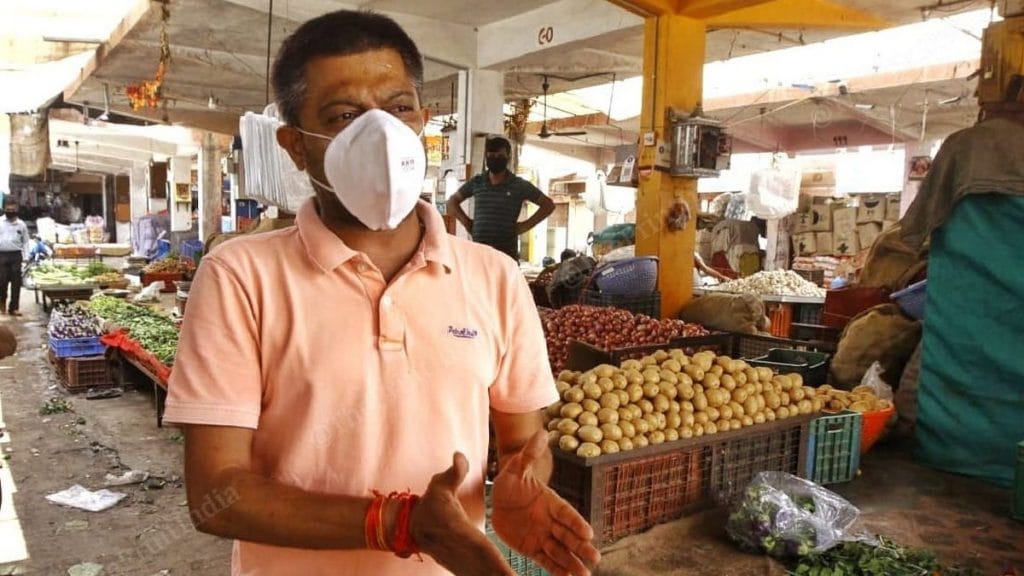
Sachin Gandhi, vice-chairman of the Agriculture Produce Market Committee, told ThePrint, “After this spike in infections, people are afraid to come to the mandi and buy produce. Before the lockdown, over 3,000 people used to visit the mandi every day; now the number has reduced to only 800.”
Also read: Man drives 36 hours from Gujarat to Karnataka during lockdown to transport skin for wife
Lack of awareness
The Gujarat government has instituted a Primary Health Care Centre for each cluster of 35,000 people. Each centre is supposed to have a medical officer who advises people if they have Covid-like symptoms, while each village has an Accredited Social Health Activist (ASHA) who goes door-to-door and monitors if anyone has any symptoms.
However, the ground reality is that villagers across districts are not aware of whom to contact in case they experience any Covid-like symptoms.
Other key initiatives to conduct door-to-door surveillance and screening, such as the dhanvantri rath and the 104 helpline, have also fallen flat as people in Anand, Bharuch and Kheda are largely unaware about them.
Asked if anyone in the village had been tested for Covid-19, sarpanch Vinodbhai of Atroli village in Kheda district pulled out his phone and showed a picture of himself getting thermally screened, saying: “This is me. I got tested for coronavirus. Most of the villagers also got tested.”
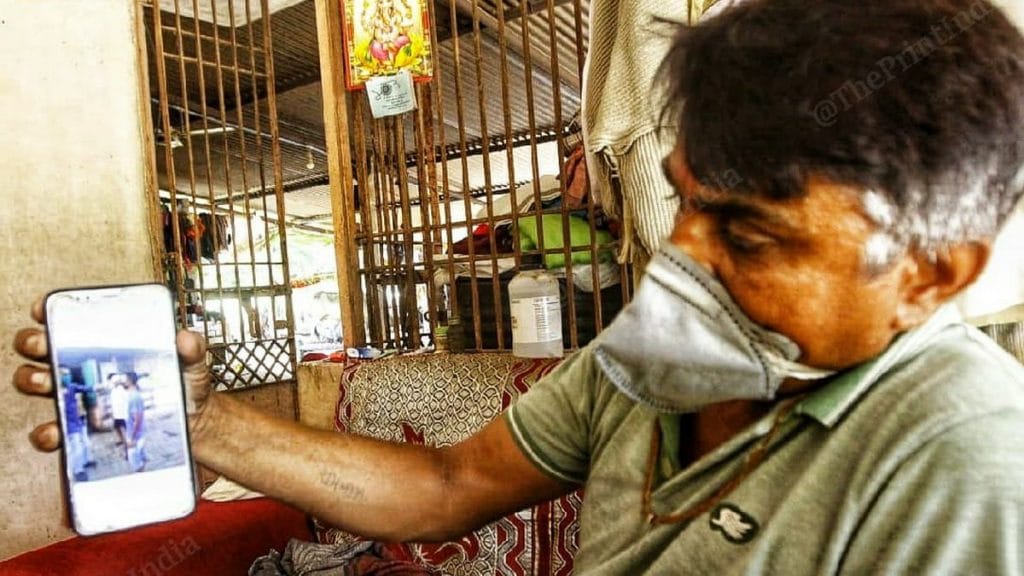
Neither he nor the villagers knew that thermal screening was not the same as Covid testing.
Geetaben from Uthela, also in Kheda, said: “If we have to get tested, we have to go to Narwal, which is 20 km away. It is hard for villagers to go that far. We are also scared to go to the city because of the virus.”
Geetaben added that the Civil Hospital in Kheda didn’t accommodate people from Uthela. However, Dr S.K. Singh, medical officer at the Civil Hospital, denied these allegations and added, “We get over 200 OPD patients daily, out of which 10 per cent are Covid-positive.”
In Anand district’s Ajarpur, sarpanch Sejal Patel said no one had been tested in their village, despite two Covid-19 cases being found.
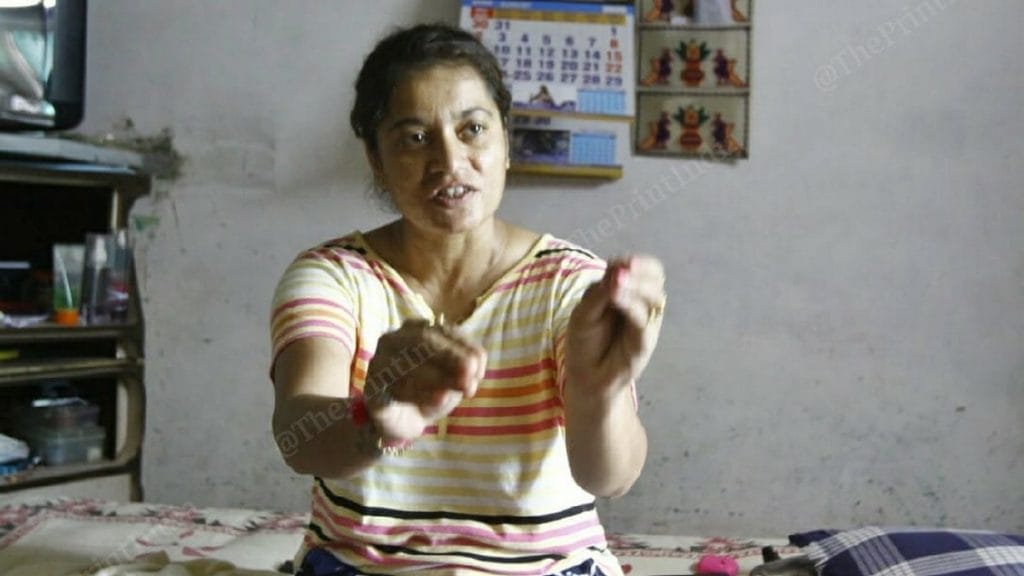
“I have also been sanitising the village with the panchayat’s money. I have imposed a strict lockdown in my village to enforce social distancing,” Patel said.
In Bharuch’s Jambusar village, Najeerbhai alleged that the ASHA workers themselves are clueless. However, villagers in Vadodara’s Mujpur had a different experience, saying they reached out to the ASHA if they experienced high temperatures or weakness.
Also read: Chariot rides, trip to park, anti-corona juice — it’s life as usual, well almost, in Ahmedabad
Paucity of testing labs
Maqbool Hussain Ibrahim Lamba, 52, from Bharuch’s Nabipur village succumbed to the virus a week ago. His son, Dr Safwan Lamba, told ThePrint, “We had to scramble for a hospital bed in Bharuch through connections. When we finally got a bed, there was also a significant delay in getting the test reports.”
The fact is that Bharuch doesn’t have a testing lab, so all RT-PCR test samples have to be sent to Surat (around 70 km away). This, several villagers complain, significantly delays test results. However, Dr V.S. Tripathi, Bharuch’s chief district health officer, said, “We make sure that the test results are released in 24 hours.”
There are no testing labs in Anand either, so samples are sent to Ahmedabad. Kheda sends its samples to either Vadodara or Ahmedabad, while Vadodara’s SSG Hospital also caters to samples from Nadiad.
Senior Congress leader Ahmed Patel had written a letter to Prime Minister Narendra Modi last week, urging him to send a team to Bharuch to assess the ground reality in the handling of the pandemic. He asserted that people in Bharuch were finding it difficult to get tests done near their homes.
The other issue Dr Lamba had highlighted was the shortage of beds. One of the few government-approved Covid-19 hospitals in Bharuch is the Welfare Hospital, whose president, Salimbhai Fansiwala, told ThePrint: “We are admitting all patients that come to us. However, Bharuch Civil Hospital and others don’t want to admit patients because they don’t want to take a risk.”
Suketu Dave, medical superintendent at the Welfare Hospital, added: “Government hospitals in Bharuch are admitting only asymptomatic patients to be on the safe side. Sometimes, patients in Bharuch are asked to shift from one hospital to another because of a shortage of ventilators. Shifting compromised patients from one hospital to another can prove dangerous.”
Also read: Why residents of Ahmedabad have become sceptical about testing for Covid-19
How to tackle the issues?
Asked what the strategy was to contain Covid infections in the villages, Bharuch CDHO Tripathi said, “We have ramped up testing in areas where spike in infections has been recorded. We have also increased the number of hospital beds in the district.
“In the villages, we are planning to involve teachers in helping with awareness about the virus. We will also institute a Jan Jagriti Samiti in each village, headed by the sarpanch, to increase awareness.”
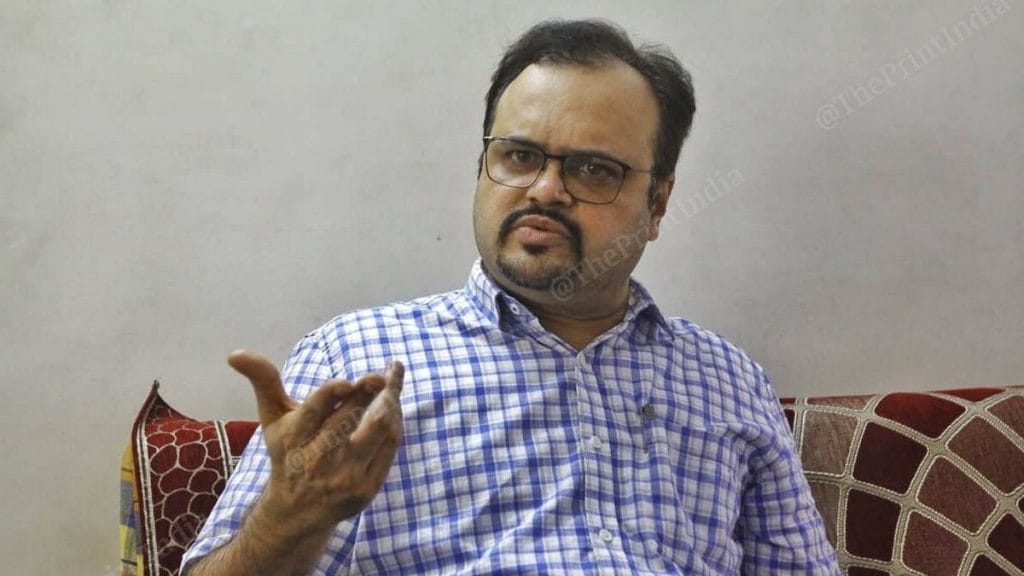
Vadodara OSD Vinod Rao added, “We presume that in the next month, we will be witnessing an increasing number of cases from these areas, so we have prepared accordingly. We have started a cycle wherein in there will be three days of home-based surveillance, followed by four days of follow-up.”
Also read: 64 Covid-positive Vadodara jail inmates moved to guest house, many fear there could be more



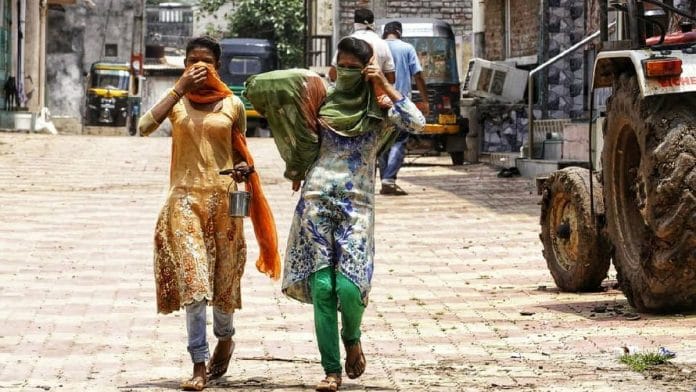



Stricter meat industry rules means more corruption۔ So far spread of Covind has no connection with meat industry۔ Do you know at every point in abettor qasaees pay speed money though everything is in order۔